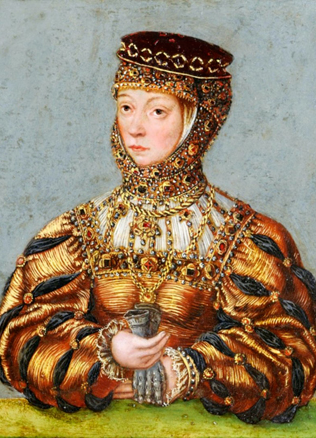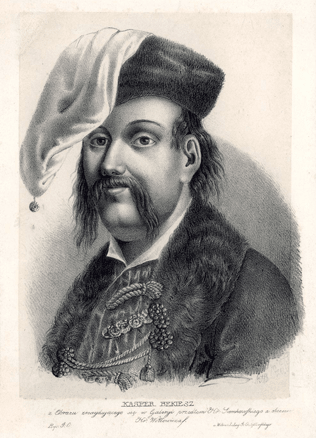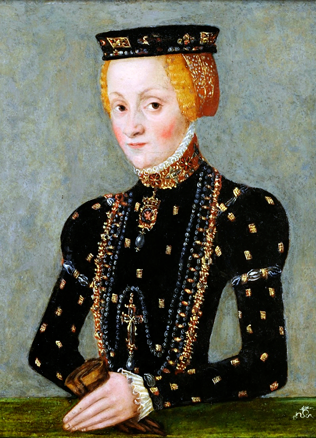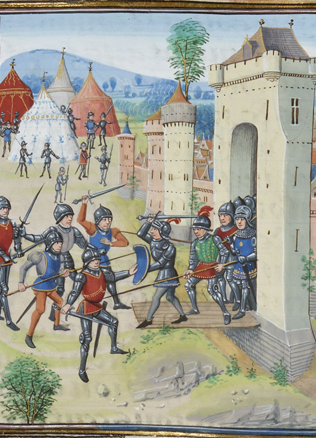Vytenis and Riga
Vytenis, the ruler of Lithuania, as he was called by his contemporaries from 1296, was a third in sequence representative of a new ruling family. This family grew into the the Gediminid dynasty. He inherited the dominion ruled not only his father Butvydas’ and his uncle Butigeidis, but also the bloody war against both branches of the Teutonic Order.
War was an everyday political occupation of this ruling ducal family.
The Teutonic Order was impossible to overcome by military force alone. Vytenis and the authorities of Lithuania understood that and therefore they started using all possible political and diplomatic forms of a battle. Vytenis strengthened the political activity of his father Butvydas in Samogitia. Like earlier he nobility of Samogitians along the Nemunas River were suppressed by force. The flow of the Lithuanians being transferred to the strategic locations of Samogitia by the Ruler did not stop, which strengthened Vytenis’ military, political and economic influence. Several strongholds of the Ruler were built in the region. Because of this many Samogitian noblemen fled to the Germans. Besides war, nothing related Vytenis to the Teutonic Order in Prussia. At that time the Polish lands were being united at lightning speed into the future Kingdom of Poland. The political situation of Poland, however, did not allow the Grand Duke to find a strong partner yet. Later the King of the united state became one of them. On the other hand, friendship of Boleslov II of Masovia with the Lithuanian rulers showed that enduring beneficial peace with the pagans could fruitfully last.
Lithuanian merchants in Riga
Vytenis’ policy in Poland did not raise such troubles to the Order as it did in Livonia. Here he became involved in a conflict of the Livonian Order and the Archbishop of Riga with the burghers supporting the latter. Vytenis’ attention to the conflict between Riga and the Livonian Order was determined not only by military and political interests. From the very beginning of settling there the Germans of Riga maintained intensive trade relations with the rulers of Lithuania. Their significance and mutual benefit grew because Lithuania established itself successfully in Russian trading centres in Polotsk and Vitebsk and controlled the trade artery to the Russian lands. Trade was especially intensive in 1287–1303. Rapidly developing Lithuania’s trade and political interests near the River Daugava encouraged the ascent of the Lithuanian merchants, as a social stratum, and strengthened their activity.
According to the data of the debt registers of Riga (1286–1352), main goods imported from Lithuania were wax, expensive furs, and furs of different animals and cattle.
Some Lithuanians accumulated large sums in cash therefore even became creditors of trade operations. To sell in Lithuania they procured salt, broadcloth iron (metals), and other goods. Their supply to the pagans was considered the most severe crime by the Christian hierarchy.
United by a common enemy
In March 1298, Vytenis’ envoys signed the Peace Treaty with the burghers and the church hierarchy of the country. The Grand Duke of Lithuania promised vaguely to accept baptism. The Lithuanian army sent there restricted the attempts of the army of the Livonian Order to build a stronghold at the mouth of the River Daugava, which would have interfered with Riga’s navigation. At the end of May, Vytenis occupied the Order’s Karkus Castle, during another incursion e defeated the brothers led by the Master Brun – the Master and twenty knights were killed. But at the end of June the forces of the Lithuanians and the burghers of Riga lost the fight at the Castle of New Mill (currently Adaži) in which the army of the Königsberg commander marched immediately from Prussia to help the Livonian brothers. This failure did not break the agreements between Lithuania and Riga. The inhabitants of Riga allowed the Lithuanian garrison into the town. In 1299, the Archbishop of Riga when sending complaints to the Pope about the harm done by the Order to the Christians in Livonia used Lithuanian facts in his accusations for propagandistic purposes, apparently the brothers made the Lithuanian King Mindaugas desert Christianity. In 1305, Vytenis established closer relations with the new energetic Archbishop of Riga Frederic.
Vytenis was concerned with the course of the conflict between Riga and the Order.
When in the first half of 1312, the Commission of the Pope’s legate Franciscus de Moliano started investigating the accusations of the Archbishop of Riga and the Livonian hierarchy, the Lithuanian Ruler, denying the image of staunch pagan, sent envoys to Riga and asked to appoint two Franciscan monks who could take care of the Catholic church built in Navahrudak for the merchants. However, the relations with Riga did not develop too well. It is not clear whether any commercial benefit was expected from the political rapprochement with the burghers of Riga and the Archbishop, but beginning with 1303 trade was constantly declining.
Vytenis derived more benefit from the military and political blow to the Germans in Livonia rather than from trade.
A threat of Livonia became smaller to Vytenis. He won here: at the beginning of the 14th century he took possession of Polotsk, made several severe attacks on Livonia.
Do You Know?
Peace made by Vytenis and Riga in 1298 was in effect until 1313, until Bishops of Livonia and the deputy of the King of Denmark in Tallinn, the burghers of other towns in Livonia talked the burghers of Riga unto making peace with the Teutonic Order in Livonia and rejecting peace with the Lithuanians preserving traditional trade with them. Both the Order and Riga kept on maintaining secret trade relations with Lithuania. One of the servants of the Order bought the arms that the Lithuanians needed even in Tartu. When the Christians of Livonia became reconciled, the Lithuanian garrison was driven away from Riga. This again disturbed peace in the north of Lithuania. The Order occupied the land of Daugavpils (Naujene) that belonged to the Lithuanians and there, near the River Daugava, built a strong castle.
Literature: Henrikas Latvis, Hermanas Vartbergė. Livonijos kronikos. Iš lotynų k. vertė, įvadą ir paaiškinimus parašė J. Jurginis. Vilnius, 1991; Rowell, S. C., Lithuania Ascending: A Pagan Empire Within East-Central Europe, 1295-1345, Cambridge, 1994.
Artūras Dubonis



